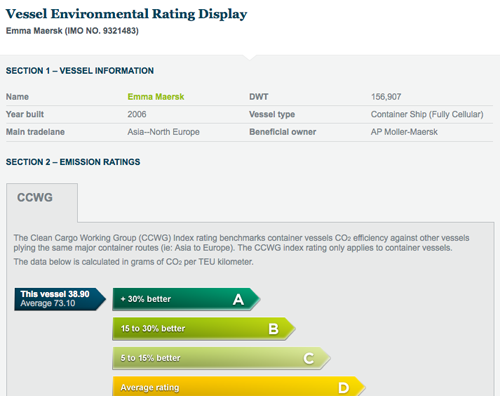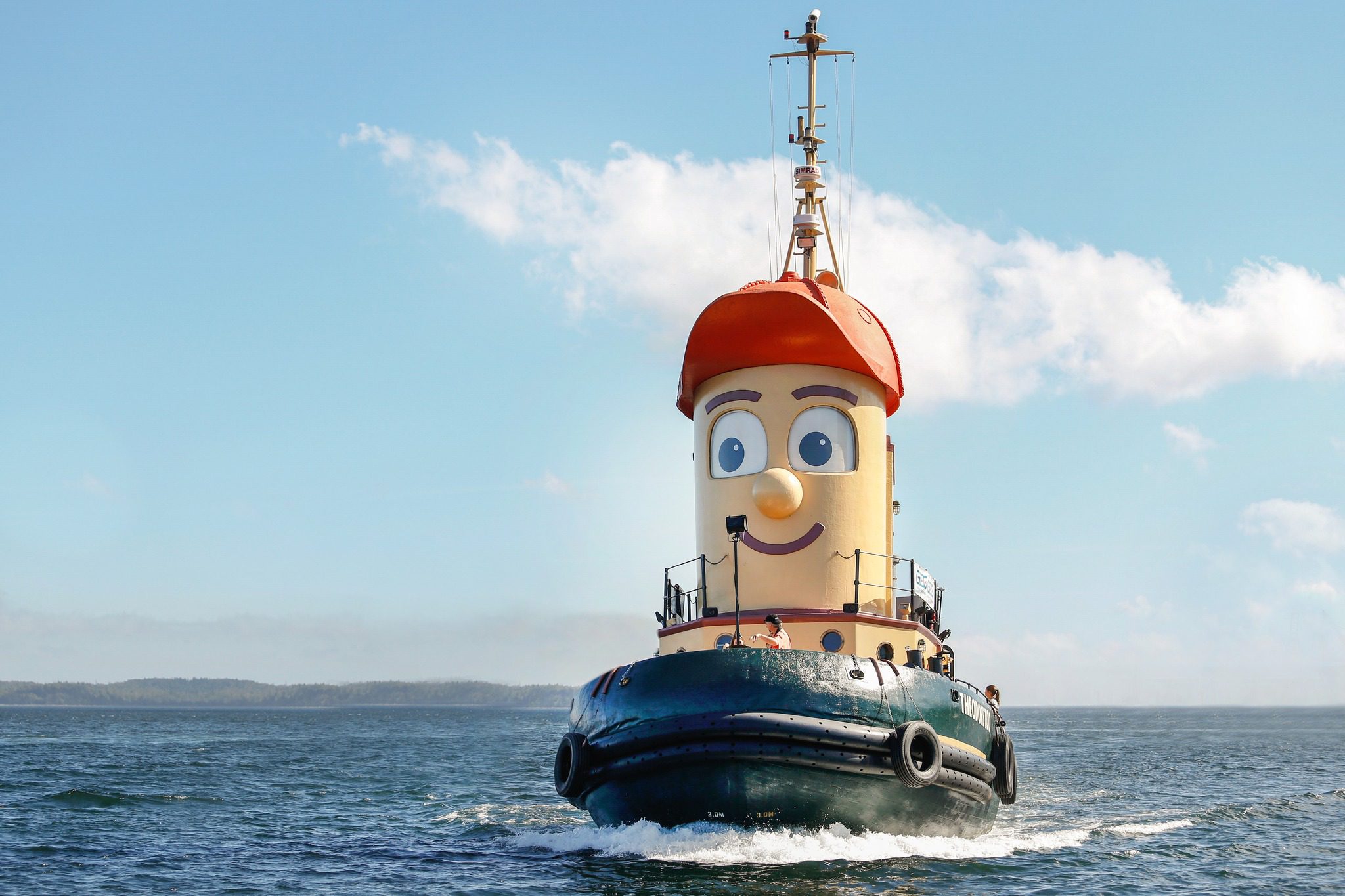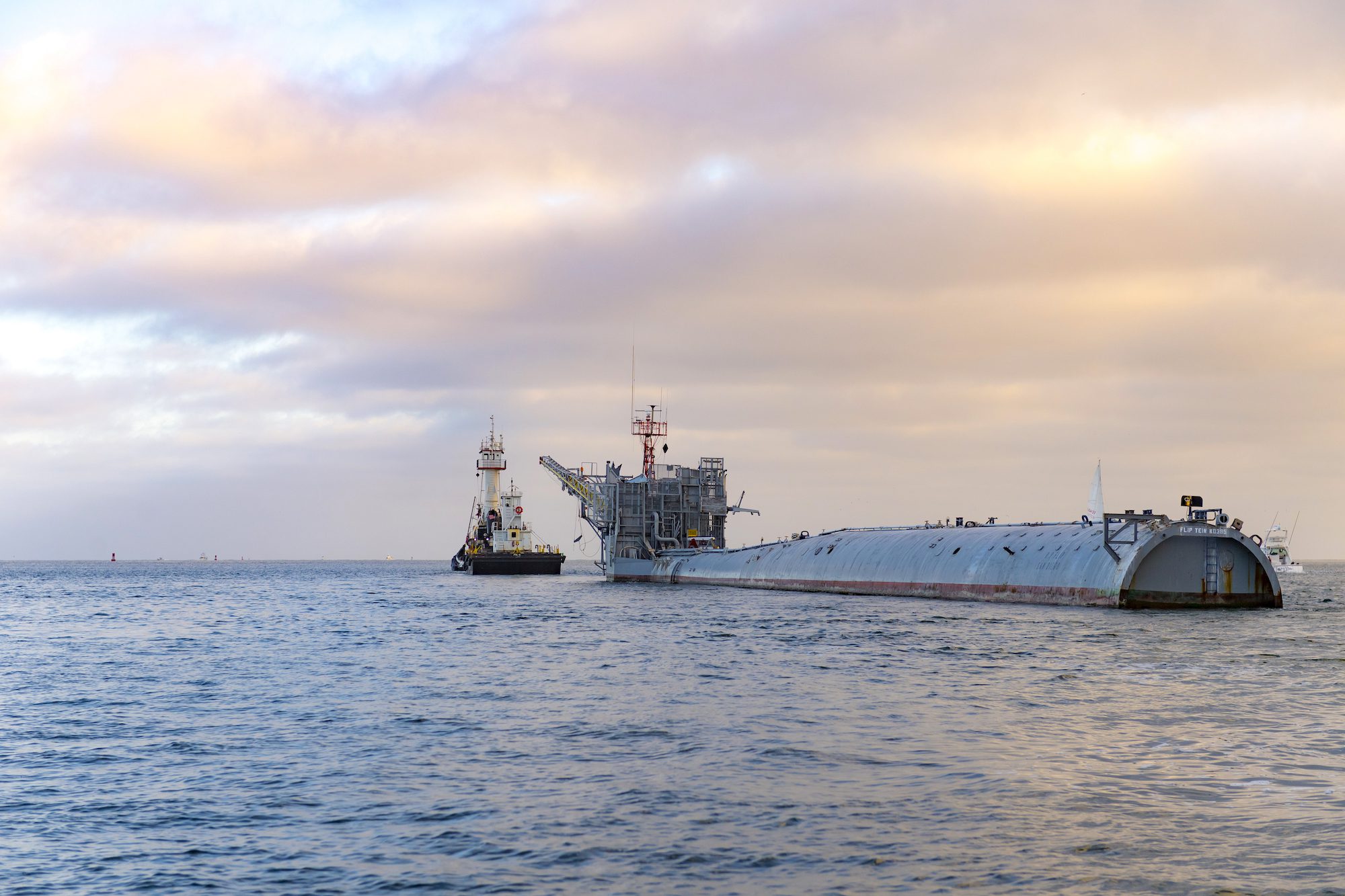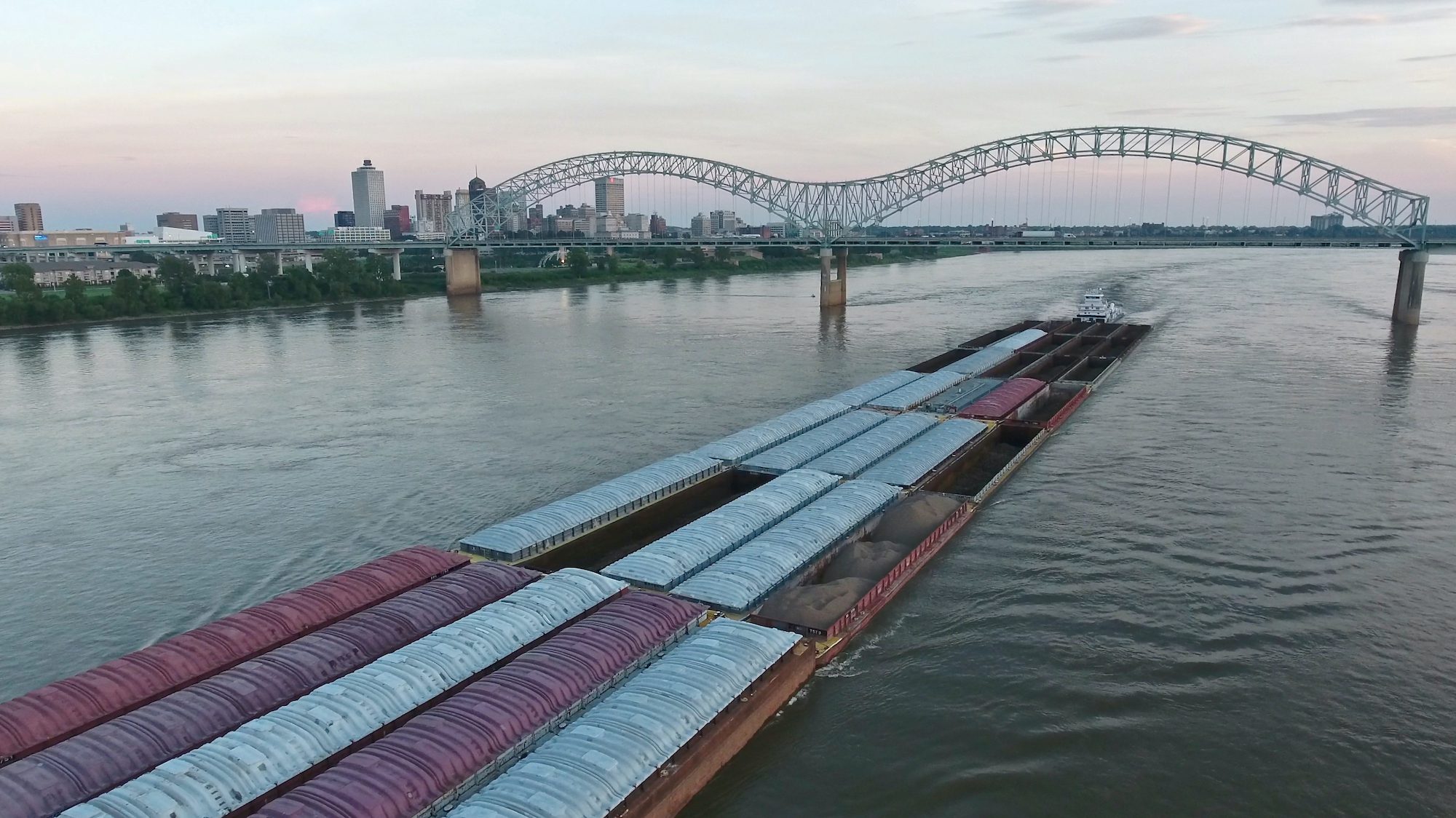
In an effort help reduce the environmental impacts of the world’s shipping fleet, Carbon War Room, the not-for-profit website dedicated to fighting the war on carbon and founded by billionaire Sir Richard Branson and a slew of other successful entrepreneurs, has launched ShippingEfficiency.org; a new online service that publishes energy and carbon efficiency ratings and information on 60,000 vessels throughout the world.
For each vessel in its database, the website provides an estimated Energy Efficiency Design Index (EEDI) rating, and compares each vessel’s rating against the average for the specified ship size and type. For container ships, the site also has a tool that provides a vessels rating based on the Clean Cargo Working Group (CCWG) Index – calculated in grams of CO2 per TEU kilometer emitted – which benchmarks the vessels CO2 efficiency against other vessels plying the same major container shipping routes (ie, Asia to Europe).
The Emma Maersk for example, which falls under the container ship of 8,000+ TEU’s category, has a EEDI rating of 2.701 compared to the category average of 2.767, giving her a “C” ranking. For the CO2 rating however, the Emma Maersk is rated “A” with 38.90 grams of CO2 per TEU kilometer, or 47% above the average vessel rating of on the same routes.
So what are we supposed to do with this information? Well, the website encourages you to sign a letter calling on the IMO to:
- Develop and adopt, by the end of 2011, clear, meaningful, verifiable and flagneutral regulations to significantly improve energy efficiency and reduce CO2 emissions from international shipping.
- Include the IMO Energy Efficiency Design Index (EEDI) as an objective and mandatory measure of a ship’s inherent efficiency in the IMO climate regulations, with a view to providing sufficient commercial incentives towards the overall goal of mitigating CO2 emissions from international shipping.
- Establish a baseline for the EEDI by the end of 2010, and to apply the EEDI to both existing and new ships as soon as possible.
While the website recognizes that maritime shipping is already probably one of the most efficient modes of transport, it is, according to ShippingEfficiency.org, “the largest potential energy efficiency opportunity in the transportation sector where new financing models will make a difference”.
[Image source – ShippingEfficiency.org]

 Join The Club
Join The Club











